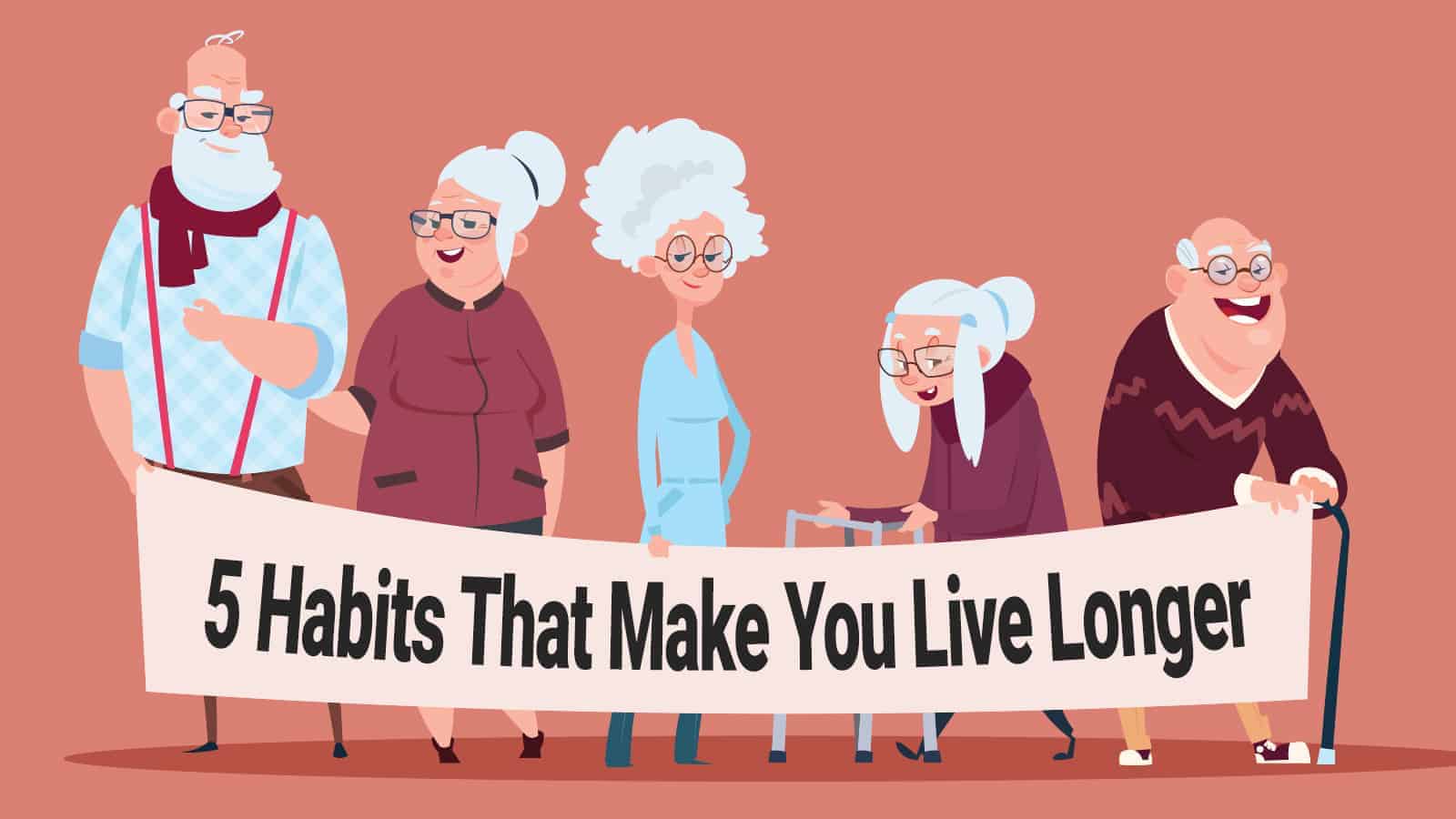Not everyone wants to live a long life, of course, but most people wouldn’t turn it down if someone offered it to them. In our modern society, we live longer than ever, but do we live a good, happy life? In general, most people can expect to live to age 60 and beyond, according to the World Health Organization. The report explained that the rates of mild to moderate disability have remained the same over the last 30 years, while rates of severe disability have decreased in high-income countries.
What’s more, a study by The Lancet journal reported that the wealthiest 1% of Americans now live about 10-15 years longer than the poorest 1%. Life expectancy in the U.S. is actually far lower than other developed nations, largely due to health inequality between the rich and poor. Obviously, the more money you have, the more you can spend on your well-being.
Unfortunately, living longer in the future might mean needing to be wealthy enough to afford the rising costs of healthcare. In other words, it seems that living longer doesn’t really make a difference if we can’t do so in good health. For example, if you lived to age 100 but couldn’t walk or take care of your basic needs for those last 20 years, would you want to live that long?
Our population is aging faster than ever, so how can we slow down aging while still living a long, happy life? We have the answers that you seek and will discuss some of the secrets to a positive, long life below.
Here are 5 habits that make you live longer:
“It’s paradoxical that the idea of living a long life appeals to everyone, but the idea of getting old doesn’t appeal to anyone.” – Andy Rooney
1. Avoid smoking or drinking too much alcohol.
According to the American Cancer Society, the life expectancy for smokers is at least 10 years less than it is for non-smokers. However, quitting smoking before the age of 40 cuts the risk of dying from a smoking-related disease by about 90%. Out of all the habits that help you live longer, some scientists believe that quitting smoking makes the biggest impact on your life expectancy.
Smoking can cause a wide range of health problems, some of them fatal. It is currently the leading cause of preventable death in the U.S. Here are some diseases and issues associated with smoking:
- Lung cancer (along with many others)
- COPD (chronic obstructive pulmonary disease)
- Heart disease
- High blood pressure
- Strokes
- Asthma
- Reproductive issues
- Diabetes
- Eye diseases
- Higher chance of preterm births
There are many other diseases linked to smoking; however, the above list includes the more common or severe ones. Obviously, not smoking is the best preventive measure. According to research, however, after 5-15 years of abstaining from smoking, your health will compare to a non-smoker.
As far as alcohol, drinking in moderation isn’t the problem; it’s drinking heavily that causes major health problems. Some of the diseases associated with heavy drinking include:
- High blood pressure
- Heart disease
- Stroke
- Liver disease
- Digestive problems
- Cancer of the breast, mouth, throat, esophagus, liver, and colon
- Cognitive problems, including learning difficulties and dementia
- Increased risk of mental illnesses, including depression and anxiety
- Social problems including decreased productivity and difficulty attending work or school
- Alcoholism
Heavy drinking is defined as having 8 or more drinks per week for women and 15 or more drinks for men. Moderate drinking, on the other hand, is defined as up to one drink per day for women and up to two drinks a day for men. In fact, a study in the Journal of the American College of Cardiology found that men and women who drink moderately have a lower risk of all-cause mortality and cardiovascular disease.
So, quitting smoking and drinking in moderation will help you live longer and enjoy a healthy, happy life.
2. Prioritize sleep.
Our modern society doesn’t seem to recognize the importance of restful sleep. Our “always on” world might have something to do with this. We check our phones constantly for notifications (including in the middle of the night sometimes!), stay up past our bedtimes watching Netflix or browsing social media, and don’t really provide a relaxing environment for sleep. For example, many people stay on technology until right before bed and don’t have a bedtime routine in place.
People who live longer make sure their sleep remains a priority, because getting a good night’s sleep is essential for optimal health. To ensure you get a restful sleep each night, adopt some good sleep practices.
- Don’t use technology two hours before bed.
- Go to bed and wake up at the same time each day.
- Have a sleep routine. Take a hot bath, make tea, meditate, or do anything that makes you feel relaxed before bed.
- Don’t eat big meals before bed. If you’re hungry, eat a protein-rich snack such as peanut butter toast or a cheese stick at night.
- Use sleep technology such as a white noise machine, tabletop fountain, or a CD with nature sounds if you have trouble falling asleep.
3. Exercise.
This is one of the most important things you can do to live longer and improve your health. Exercise can ward off diseases, improve your mental health, and boost your physical fitness. Here are a few specific ways that exercise can help you live longer, according to Harvard Health Publishing:
- Improves heart health.Regular physical activity lowers unhealthy LDL cholesterol and raises healthy HDL cholesterol. It also lowers blood pressure, blood sugar, and triglycerides. Finally, it burns body fat, all of which help to protect your heart. Exercise is so important to heart health that an exercise-based rehabilitation program after a heart attack can lower the risk of dying from a heart attack by one-third.
- Keeps your brain healthy.Exercise keeps blood vessels healthy and reduces the risk of blood clots and strokes. Some studies have shown that exercise might even help to prevent cognitive diseases such as Alzheimer’s and dementia.
- Balances blood sugar levels. Keeping physically active helps you to maintain a healthy weight and raise your sensitivity to insulin, which can help prevent diabetes. In fact, one study found that just 5 hours of brisk walking a week lowered diabetes risk by 30%.
- Keeps you strong and mobile.Working out, specifically with weights, can help slow bone loss and prevent bone-related diseases such as osteoporosis. Regular weightlifting helps promote new bone growth and improves your strength. In general, keeping active throughout your life will decrease chances of becoming immobile due to disease.
4. Eat mostly whole foods.
It’s no secret that diet plays a huge role in longevity. Each day, you make a choice to either feed your body disease or feed it health. You can look at diets throughout the world and see how healthy foods correlate with a longer life. For instance, some of the longest-living people reside in Costa Rica, Greece, and Japan, and what do those people have in common? They eat a lot of uncooked, whole foods such as fruits, vegetables, olive oil, nuts, seeds, and fresh fish.
In the U.S., however, we eat a lot of processed foods, which is reflected in our rates of preventable diseases. In general, make sure you eat mostly whole foods. Eat processed foods and red meats in moderation. Add a wide variety of fruits and vegetables to your diet to ensure you get all the nutrients you need.
If you eat mostly whole foods and move your body daily, you’ll have a better chance at keeping a healthy body weight, which is another habit of people who live longer.
5. Nurture your relationships.
Loneliness is becoming an epidemic in this world, despite our increased ability to connect with each other. According to psychologist Amy Sullivan, loneliness makes cortisol levels in the body go up. Cortisol is linked to increased risk of inflammation, heart disease, cardiovascular problems, and even mental illness.
To combat loneliness, she suggests taking time to talk to people in person instead of via text or social media. If you don’t have friends, try to join groups or activities in your community that you’re interested in. One of the best ways to make friends is through a shared interest in something. Make sure to keep in contact with family as well. If you’re really struggling, don’t be afraid to reach out to a therapist or psychologist who can help you work through difficult feelings or experiences.
Final thoughts on habits that help you live longer
If you want to live longer, it’s important to look after your health by refraining from smoking or excessive drinking. Eating healthy foods, exercising regularly, maintaining relationships, and getting enough sleep also provide a good start toward living a long and healthy life.
Bonus tip: Don’t overwork yourself. We’re working longer hours than ever in today’s world, but rarely making enough time for ourselves and our families. Try to cut your hours at work so you can focus on your well-being and spending time with family and friends. Don’t forget positive thinking, either! It can do wonders for your health.















 Community
Community

